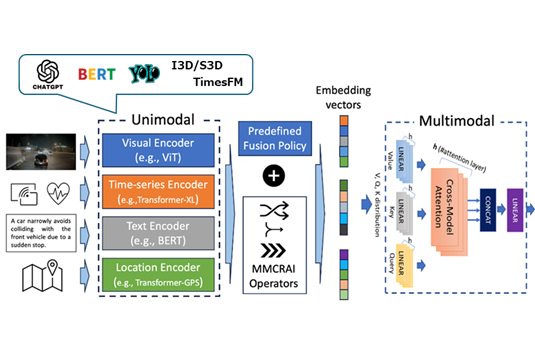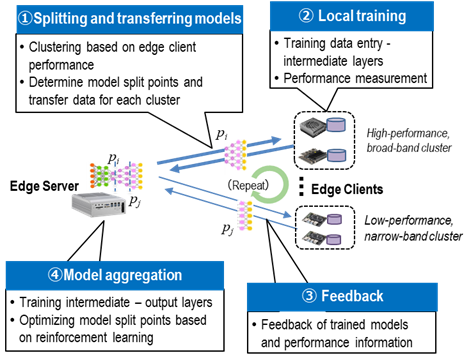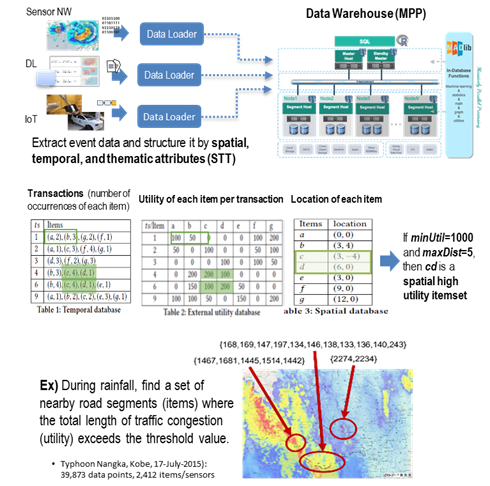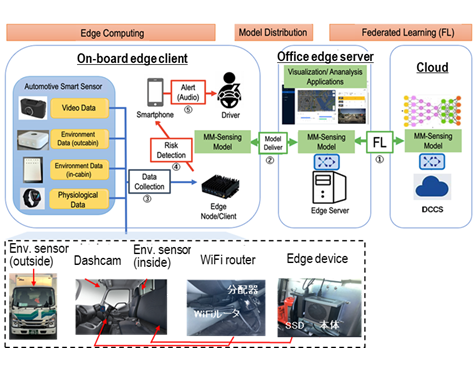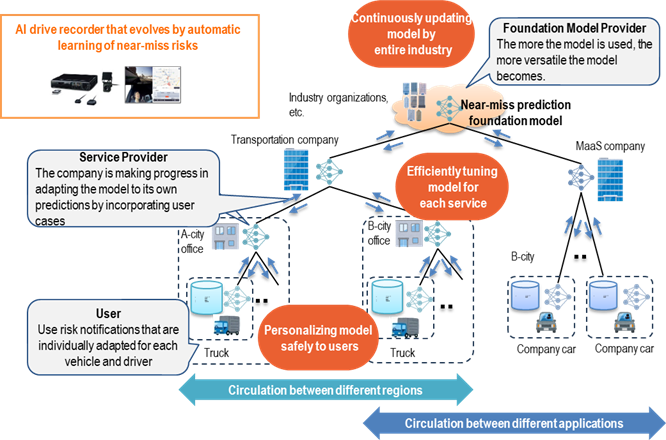AI Model Collaboration Technology
We are conducting research on technologies that combine AI models that handle different types of data and tasks as needed to improve and evolve performance, as well as distributed machine learning technologies that safely and efficiently utilize distributed models, data, and computing resources.



